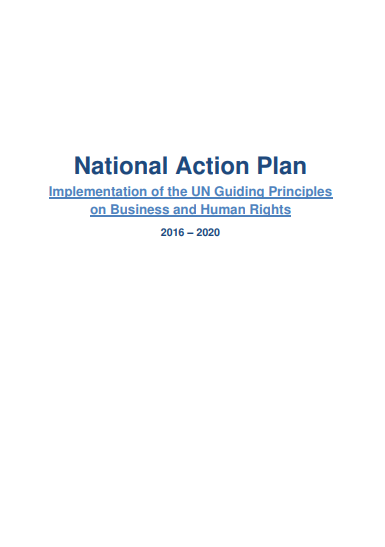The German government adopted the National Action Plan on Business and Human Rights on 21 December 2016, after a two year consultation process with civil society, business and government representatives.
Objectives of the National Action Plan
The Federal Government attaches great importance to worldwide protection and promotion of human rights. The European Commission, in its Communication of 2011 entitled “A renewed EU strategy 2011-14 for Corporate Social Responsibility”, called on all EU Member States to develop their own national action plans for the implementation of the UN Guiding Principles. The Federal Government, in the coalition agreement of 2013, committed itself to implementing the UN Guiding Principles in Germany. Through the present National Action Plan for Business and Human Rights (NAP), it wishes to contribute to improving the human rights situation worldwide and to giving globalisation a social dimension in accordance with the 2030 Agenda for Sustainable Development.
The objectives of the NAP are:
- to make the UN Guiding Principles on Business and Human Rights applicable in practice for all players,
- to highlight duties and responsibilities of the state and business respectively,
- to guarantee policy coherence, and
- to ensure that German business remains sustainable and competitive.
In the light of these objectives, the present Action Plan is intended to launch a process of creating a road map for the practical implementation of the Guiding Principles. Its aim is to pool the capacities of the various players from government, business, civil society and trade unions, particularly with a view to contributing actively to improving the human rights situation throughout supply and value chains in Germany and worldwide. Through the establishment of reliable basic conditions for German enterprises, the Federal Government thus wishes to work towards a global level playing field and to continue the process launched in 2015, when the Heads of State or Government of the G7 countries adopted their declaration on sustainable supply chains. A common understanding by all players worldwide of due diligence as described in the UN Guiding Principles is an indispensable means to this end.

